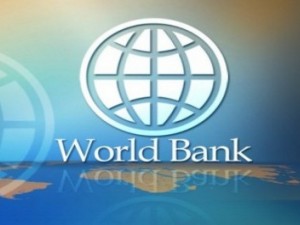The head of the World Bank yesterday warned that financial markets face a rerun of the Great Panic of 2008. Robert Zoellick said crisis-torn Europe was heading for the ‘danger zone’. Mr Zoellick, whose term ends at the end of the month said it was “far from clear that eurozone leaders have steeled themselves” a Greek exit from the Euro and very possibly more serious problems in Spain. The exit of money from Spain’s banks into safe havens like the UK, Germany and the US on Friday was remarkable.
 The German two-year government bond yield fell below zero for the first time, with the result that international investors are now paying, rather than being paid, for lending to Germany.
The German two-year government bond yield fell below zero for the first time, with the result that international investors are now paying, rather than being paid, for lending to Germany.
Bad economic news from around the world includes manufacturing output falling in Britain and Europe, unemployment rising in the Eurozone and the US, and emerging economies such as Brazil and China showing signs of slowing down.
The FTSE 100 index fell 60.67 points to a new 2012 low of 5260.19 and the pound tumbled against the US dollar to $1.5234 which is a level not seen since January. The Dow Jones Industrial Average dropped over 200 points wiping out all gains for this year.
Borrowing costs in Spain and Italy have reached back above 6 per cent towards the 7 per cent level that triggered bailouts in Greece, Ireland and Portugal. Mr Zoellick warned that the coming months could be as bad as the collapse of US investment bank Lehman Brothers in 2008. He said: ‘Events in Greece could trigger financial fright in Spain, Italy and across the eurozone. The summer of 2012 seems too reminiscent of 2008.
‘If Greece leaves the eurozone, the contagion is impossible to predict, just as Lehman had unexpected consequences.
Unless Spain can successfully re-monetize it will be crippled by its banking sector and will be the next domino to fall. Mr Zoellick said: ‘Eurozone leaders need to be prepared to recapitalise banks. In the eurozone, the guarantees of some national sovereigns are unlikely to be sufficient and only that of the “euro-sovereign” will suffice.
‘There will not be time for meetings of finance ministers to discuss the outlook and debate the politics. ‘In panicked markets, investors flee to safe assets, sparking other flames.’ On Friday investors scrambling for lifelines piled into German, US and UK government debt. Not only did the German two-year bond yield fall below zero for the first time, but also the yield on ten-year UK gilts – the benchmark borrowing cost for the British Government – hit a record low of 1.44 per cent.
The yield on the equivalent US treasuries fell to 1.46 per cent – the lowest in over 200 years of records. ‘People’s objective is the return of their capital, not the return they get on their capital,’ said Sam Hill, a strategist at Royal Bank of Canada. Ireland has accepted tough new budget controls, as stipulated under the European fiscal treaty, in a referendum which saw 60 per cent of voters backing the deal.
Eurozone unemployment has hit a record high and job losses are likely to keep climbing as the debt crisis eats away at businesses’ ability to hire workers while indebted governments continue to cut staff. Around 17.4million people were out of work in the 17-nation eurozone in April (11 per cent of the working population) – the highest level since records began in 1995, the EU’s statistics office Eurostat said today.

